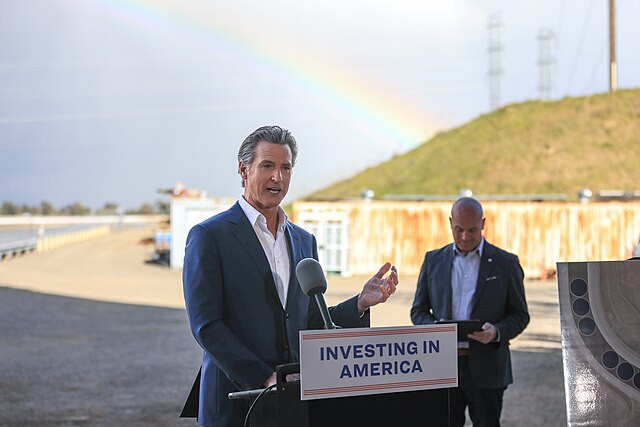California Governor Gavin Newsom has formally requested nearly $40 billion in federal disaster relief to help Los Angeles recover from devastating January wildfires, marking one of the largest aid requests in state history. The funding, which would be distributed across multiple sectors, is aimed at restoring communities, rebuilding infrastructure, and strengthening wildfire resilience, according to a letter obtained by The Washington Post.
"I'm asking Congress to have the back of the American people and provide disaster funding to help Californians recover and rebuild as soon as possible," Newsom wrote in a post on X.
Scope of the Wildfire Damage
The Eaton and Palisades fires, which ignited on January 7 amid a powerful Santa Ana windstorm with 100 mph gusts, quickly grew into some of the most destructive wildfires in California's history. The blazes burned more than 37,000 acres, killed 29 people, and destroyed over 16,000 structures, primarily in the Pacific Palisades and Altadena neighborhoods of Los Angeles.
The Palisades Fire ranked as the third-most destructive fire in state history, destroying 6,837 structures, while the Eaton Fire surpassed it, claiming 9,418 buildings, making it the second-most destructive in California's history.
Insurance companies have already reported staggering losses. State Farm, one of California's largest insurers, stated that it received more than 8,700 claims totaling $1 billion by early February. The company has since requested emergency rate increases of up to 22%, citing financial distress.
Breakdown of the Federal Aid Request
Newsom's $40 billion request to Congress includes:
- $16.8 billion for fire response, debris removal, and infrastructure repairs (including roads, bridges, and public utilities).
- $9.9 billion for housing reconstruction and long-term infrastructure projects.
- Additional funds for business recovery, workforce support, tax incentives, and wildfire resilience programs.
Newsom warned that California may require additional funds as recovery efforts progress, stating in his letter that "the total impact on California's economy will take years to fully quantify."
A UCLA study estimated the wildfires caused up to $164 billion in total economic losses, while private forecaster AccuWeather projected damage and economic costs could exceed $250 billion, potentially making them the costliest natural disaster in U.S. history.
Political Divisions Over Federal Assistance
Newsom's request has received bipartisan support from California lawmakers, including Rep. Brad Sherman (D-Calif.), who represents parts of Los Angeles County. "I support the Governor's $40 billion in requested federal funding, proportionate with the scale of this disaster, which my constituents urgently need in order to rebuild their homes and their lives," Sherman wrote.
Rep. Judy Chu (D-Calif.), whose district includes Altadena and Pasadena, called the request critical for helping Californians recover. "This package will provide an injection of desperately needed federal aid for rebuilding homes, businesses, and community institutions," she stated.
However, President Donald Trump has signaled hesitation over sending federal funds to California, stating in a Fox News interview with Sean Hannity that he doesn't think the federal government should give California "anything" unless the state increases water allocations to Southern California.
Trump previously visited the Pacific Palisades in late January to survey the wildfire damage, stating: "I don't think you can realize how rough it is, how devastating it is until you see it. I mean, I saw a lot of bad things on television, but the extent of it, the size of it... it is devastation."
California's Recovery Plan
Following the fires, Los Angeles officials announced a two-phase rebuilding strategy led by Chief Recovery Officer Steve Soboroff.
- Phase 1, led by the Environmental Protection Agency (EPA), involves a $100 million hazardous material cleanup, with more than 500 personnel deployed.
- Phase 2, led by the U.S. Army Corps of Engineers, focuses on debris removal and is expected to continue through January 2026.
Despite these ongoing efforts, California's wildfire crisis remains a pressing issue, with climate conditions increasing the risk of future disasters.
"To deny it - or place conditions on it - would be to abandon people in their time of most need," Sen. Adam Schiff (D-Calif.) posted on X. "People need help. We must act urgently."






